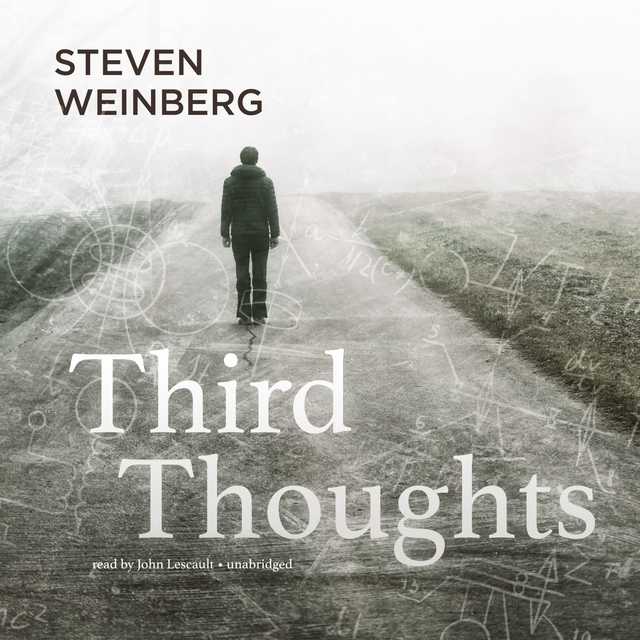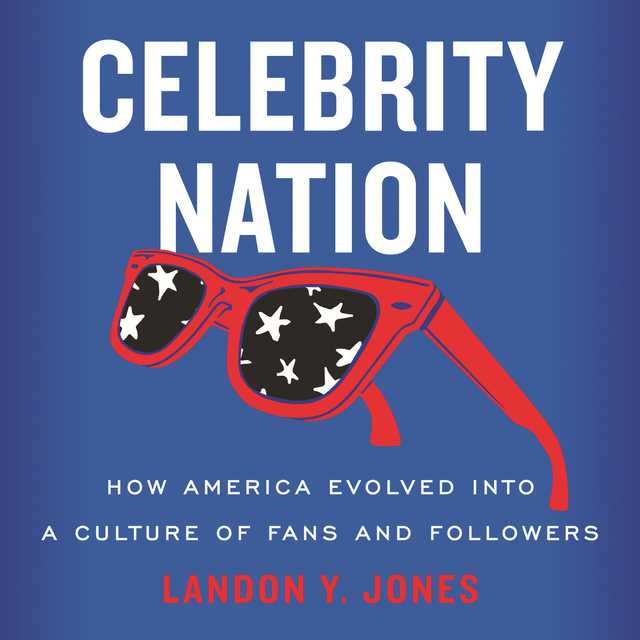After You Believe Audiobook Summary
From the author of the acclaimed Simply Christian and Surprised by Hope comes a book that addresses the question that has plagued humans for centuries–what is our purpose? As Christians, what are we to do with that ambiguous time between baptism and the funeral? It’s easy to become preoccupied with who gets into heaven; the real challenge is how we are going to live in the here and now.
Wright dispels the common misconception that Christian living is nothing more than a checklist of dos and don’ts. Nor is it a prescription to “follow your heart” wherever it may lead. Instead, After You Believe reveals the Bible’s call for a revolution–a transformation of character that takes us beyond our earthly pursuit of money, sex, and power into a virtuous state of living that allows us to reflect God and live more worshipful, fulfilling lives.
We are all spiritual seekers, intuitively knowing there is more to life than we suspect. This is a book for anyone who is hoping there is something more while we’re here on Earth. There is. We are being called to join the revolution, and Wright insightfully encourages readers to find new purpose and clarity by taking us on an eye-opening journey through key biblical passages that promise to radically alter the work of the church and the direction of our lives.
Other Top Audiobooks
After You Believe Audiobook Narrator
Antony Ferguson is the narrator of After You Believe audiobook that was written by N. T. Wright
N. T. Wright is the former Bishop of Durham in the Church of England and one of the world’s leading Bible scholars. He serves as the chair of New Testament and Early Christianity at the School of Divinity at the University of St. Andrews as well as Senior Research Fellow at Wycliffe Hall, Oxford University. He has been featured on ABC News, Dateline, The Colbert Report, and Fresh Air. Wright is the award-winning author of many books, including Paul: A Biography, Simply Christian, Surprised by Hope, The Day the Revolution Began, Simply Jesus, After You Believe, and Scripture and the Authority of God.
About the Author(s) of After You Believe
N. T. Wright is the author of After You Believe
More From the Same
- Publisher : HarperAudio
- Abraham
- American Gods [TV Tie-In]
- Dead Ringer
- House of Sand and Fog
- Prey
After You Believe Full Details
| Narrator | Antony Ferguson |
| Length | 10 hours 1 minutes |
| Author | N. T. Wright |
| Publisher | HarperAudio |
| Release date | March 02, 2010 |
| ISBN | 9780061953651 |
Additional info
The publisher of the After You Believe is HarperAudio. The imprint is HarperAudio. It is supplied by HarperAudio. The ISBN-13 is 9780061953651.
Global Availability
This book is only available in the United States.
Goodreads Reviews
Cathleen
May 28, 2011
Last winter, while on a trip to Southern California, theologian N.T. Wright spent some time strolling through Laguna Beach, the seaside village I happen to call home.He wandered into one of our many charming boutiques -- he called it, perhaps more accurately, a "junk shop" -- and saw a sign that piqued his interest theologically. It read: "There are times I think I'm doing things on principle, But mostly I just do what feels good. But that's a principle, too.""Doing what feels good" would be "easy to caricature ... as a typically Californian attitude, but that would ignore the fact that a vast swath of contemporary Western life has operated on precisely this 'principle,' and has strongly resisted, in the name of `freedom,' any attempt to question or challenge it," Wright writes in his latest book, After You Believe: Why Christian Character Matters.In his new book, Wright, the Anglican bishop of Durham, England, posits that the development of virtue -- by the church and in broader society -- could help lead the Western world out of the sea of despondency in which it currently finds itself languishing.We don't hear much about virtue these days. I'm not talking about piety, or goodness, but something more akin to moral fortitude or excellence.We're so unaccustomed to talking about virtue in polite company that at first it called to my mind terms like "pious" or "judgmental." But it's not that. It's a once-common, now-radical notion that might vault us to a better place in our common narrative."I have the sense that so many Christians bounce in between an implicit legalism and a just let-it-all-hang-out-do-your-own-thing kind of attitude. And I think we need to do it differently," Wright said in an interview this week from his home in England."Most people, I think, today when they hear the word 'virtue' assume that it vaguely means goodness or behaving yourself for whatever. I have tried to track back from that to a much more rich and interesting meaning. Virtue comes from a Latin word (that) basically means 'strength.' And the idea in the classical tradition is that character can be built up just as muscles can be trained if you're going to be a football player or a weightlifter."Weight lifting, at first, is difficult, even painful. It doesn't come easily, or on its own. But do it often enough and it becomes second nature.Early in his new book, Wright, one of the most prolific and influential theologians of the 20th century, introduces an example of virtue from "secular" society: Captain Chesley "Sully" Sullenberger III, the U.S. Airways pilot who successfully -- some say "miraculously" -- landed his Airbus A320 plane full of passengers in New York City's Hudson River after the plane's engines were knocked out by a flock of Canada geese."Sully didn't have time to think," Wright said. "He'd done all the work over the previous 30 years. And that's the thing about virtue, which I think society really hasn't caught on to. ... Courage is not rushing off into battle having had a stiff drink and waving a sword around and yelling some great whoop! Any fool can do that."Courage is what happens when you take a thousand small decisions to put someone else's safety ahead of your own. Some of those decisions may be a bit difficult, but you get used to doing that and then suddenly, there is a major crisis. And without thinking, you automatically put other people's safety ahead of your own. ... That's the point of virtue."During a recent salon in his living room, one of my best friends argued, rather astutely I thought, that you can train a person to think rationally and to reason well. It's like learning to play tennis, he said. You just have learn the skills and practice them.Likewise, virtue won't develop overnight, or without practice. And it cannot be mandated.Virtue can, and should, be fostered by all of us and practiced again and again and again, like weight lifting, until it feels like our second nature.http://www.huffingtonpost.com/cathlee...
Booketeer
February 09, 2011
This is an extremely helpful, understandable, and practical book on the Christian life. Wright wants readers to understand that God wants Christians to be changed in their very character and that this change, while a gift, is not effortless. This had a powerful impact on me especially because I listened to Proverbs several times while reading it and that book amplified Wright's message.If you were to only read one book by N. T. Wright I think it should be this one. I love some of his other works, but this addresses a central issue to every Christian and I've never found a book like it.Full disclosure: I received a review copy of this book many months ago.
Christina
March 17, 2020
This book opened my eyes to the fact that Christian virtue is done out of gratitude for and through the power of what Christ has done, but it is more than that. Christian virtue, in its fullest sense, is living out your part in the gospel story, anticipating a full and complete future kingdom of Jesus. This book, though imperfect, is full of paradigm-shifting revelations derived from abundant Scripture quotations.
Ada
February 04, 2021
One of the things I like about NT Wright is his discernment in polarized subjects, how he sees through various opposed theories bringing the truth (and falshood) in each to light by offering a third, balanced way. To the question of "how we should live", people may fall in one (or a mixture) of 2 extrems: be subject to rules or be true to yourself ("either you obey rules imposed from the outside, or you discover the deepest longings of your own heart and try to go with them"). The first raise the objection of hypocrisy, the latter the objection of loose behaviour that wreaks havoc in other ppl’s lives. Instead, NT Wright argues that the answer is acting right as second nature. "Virtue is what happens when habitual choices have been wise."How is that done? Sequence: Grace: meets us where we are but is not content to leave us where we are -> direction and guidance to enable us to aquire right habits to replace the wrong ones.*The goal is the new heaven and new earth, with human beings raised from the dead to be the renewed rulers and priests.*This goal is achieved through the kingdom-establishing work of Jesus and the Spirit, which we grasp by faith, participate in by baptism, and live out in love.*pathway: complete set of learned habits of life: of heart and body and especially mind. Straigth clear sharp thinking not only grasp the goal and the pathway, but is part of the maturity of which Paul speaks*Christian living in the present consists of anticipating this ultimate reality through the Spirit-led, habit-forming, truly human practice of faith, hope, and love, & the 9fold fruits of the Spirit, sustaining Christians in their calling to worship God and reflect his glory into the world.Aristotel vs JesusAristotel: self-centered goal: the virtous isolated hero. Jesus: kingdom before self: we are called to be rulers (bringing God’s healing order to the world) and priests (indewlling of the Spirit - gathering up the worship of creation) by the settled habits of holiness and prayer. Virtues unique to christianity: humility, patience, charity, chastity. Fruits of the Spirit"To get the fruit you have to learn to be a gardener. You have to discover how to tend and prune, how to irrigate the field, how to keep birds and squirrels away. You have to watch for blight and mold."Last fruit of the spirit cannot be conterteited, not even in young healthy happy people: self-control (sign of Spirit’s work). The fruits only work togetherImposibility through human power alone:Christ’s victory over sin, over the powers of darkness made it possible, but still (as we are not puppets) there is effort involved. (Jesus calles to self-denial, taking up the cross and following Him)Put to death the old self (dehumanising habits), take up Christ (life-giving, humanising habits: our bodies as living sacrifice, our minds renewed to know God’s will).The virtous circle:Starting point: graceEnding point: glory (being filled with the presence of God)5 elements: Scripture, stories, examples, community, practices (worship, baptism, prayer, giving money).I have foind his reflections on reading Scripture very motivating. And here’s how he ends the expositionof the circle:"wherever you begin in developing the habits of the Christian heart, it’s vital to go on around the circle, and around again, until the circle itself becomes a habit of the heart, a second-nature thing. Only then, when you are suddenly faced with an emergency demanding a creative, reconciling act of healing and hope, will you be ready to perform it. Only then, when there is a choice betwieen campaigning for justice for people being unfairly greated by the government and saving our papularity by turning a blind eye, will we have all our instincts tuned, not to what the newspapers say, but to what the gospel says. Only then, when faced with personal tragedy among its members, will the rest of the congregation know, by second nature, what to say and do. Only then will we know in our bones what we should be doing “after we believe.”Only then, when someone says, “Tell me about Jesus,” will we truly know what to say. And only then will what we say make the sense that it should."Some other passages I have enjoyed:"The New Testament’s vision of Christian behavior has to do, not with struggling to keep a bunch of ancient and apparently arbitrary rules, nor with “going with the flow” or “doing what comes naturally”, but with the learning of the language, in the present, which will equip us to speak it fluently in God’s new world.""Virtue is what happens when someone has made a thousand small choices requiring effort and concentration to do something which is good and right, but which doesn't come naturally. And then, on the thousand and first time, when it really matters, they find that they do what's required automatically. Virtue is what happens when wise and courageous choices become second nature.""Part of the problem about authenticity is that virtues aren't the only things that are habit forming: the more someone behaves in a way that is damaging to self or to others, the more "natural" it will both seem and actually be. Spontaneity, left to itself, can begin by excusing bad behavior and end by congratulating vice.
Jes
June 03, 2019
Read this book for my Christian leadership course, and it did a good job communicating its point in the discussion of the makeup of Christian character, how it forms and how it transforms. Had to write part of a paper about it, so I don't really feel up to talking any more about it.
Brian
January 29, 2013
In this book, Wright unfolds a vision for the formation of Christian character, by carefully situating this vision within his understanding of the kingdom of God and new creation, and showing how the NT writers take the classical approach to virtue (such as in Aristotle) and reconfigure it around Jesus and the Spirit, giving prominence to the new virtues of faith, hope, and love. Lots of ground is covered here, touching on theology, ethics, and ecclesiology, and all in very readable prose. There are a few of the usual places where I disagreed with Wright (especially his unbalanced critiques of much post-Reformation Christian thought), but as a whole, this is an excellent book and may be the best pop-level book by Wright that I've read. A good follow-up to Simply Christian and prelude to Surprised by Hope, and my favorite of the three.
Colin
October 14, 2019
This is basically an argument for Pauline virtue ethics as opposed to Aristotelian virtue ethics. Instead of the four main virtues being courage, temperance, prudence, and justice, they are replaced with humility, charity, patience, and chastity. Rather than the goal of these virtues being the happy life (primarily for the individual, but also good for society), Wright argues that the goal of Paul's system is creating a people who accurately reflect the image of God to the world around them as well as bring worship back to God. In essence, it reflects the idea of, "becoming who we are," in terms of our character becoming more and more like the true human, Jesus. This presupposes the understanding that our previous and current state are that of the tainted human. Though writing style could be difficult at times (examples and metaphors felt more like caricatures) the content I think is really helpful for the Christian trying to learn how to navigate a tough social and political climate. Wright argues against the ditches of just following the rules or just following your heart, and pushes the development of character that helps us answer the questions of what it looks like to follow God.
Milan
November 11, 2020
It is much like Wright’s other works in the series. I appreciate his thinking, which always seems to open my eyes. At times I find myself wishing the books were 100 less pages. The core theme, that resonated well with me, Is that Christian virtue is a focal point that will combat many missteps along the journey. The practice of these virtues is meant to show today what Gods kingdom new world will be like. His emphasis is on our role as a royal priesthood. It’s very encouraging/challenging insight from scripture. “The practice and habit of virtue, in this sense, is all about learning in advance the language of Gods new world.”“It is more or less impossible to speak of God with any conviction or effect if those who profess to follow Jesus are not exemplifying humility, charity, patience, and chastity. These are not optional extras for the especially keen, but the very clothes which the royal priesthood must “put on” day by day.”
Nderitu
May 19, 2020
The discussion on Christian character is highly thought of as a snap-your-fingers-and-presto type of action you get on the day of your justificiation. However this book reminds us this is a marathon and not a sprint. With the case study of a pilot who safely got a plane down after being struck by geese in the jet turbines. This is a book to go back to time after time. It will have you understanding that even as you are needed to understad this is a marathon, it is forming your character every day as long as you put it to practise by reading the BIBLE. Pray and read your BIBLE every day if you want to grow.
Emmanuel
February 18, 2021
Excellent. Well worth a second, slower read.
Daniel
May 19, 2020
Great book and a companion to Surprised by Hope.
Andrew
January 30, 2023
I loved this. For those who ask themselves what’s next after committing your faith wholeheartedly? This is the stepping stone.
David
February 15, 2017
The central question this book seeks to answer is, what is the purpose of the Christian life after you first believe? (Hence the title!) This book serves as a sort of third part in a trilogy following Simply Christian and Surprised by Hope. Wright's answer to the question is that we live as followers of Christ with the goal of having a distinctly Christian character formed within us.Before getting to how this works, Wright dispels two false notions of the Christian life. First is the idea that focuses on rules: Jesus died to forgive us for not following the rules well enough, now we are forgiven and should follow the rules again. Second is the idea, very common in our culture among both Christian and secular people, that we need to be true to ourselves. Here the focus is on feelings: how you feel is who you are so be authentic by following your feelings. For Christians, the assumption is that we are filled with the Spirit so our feelings are directed by the Spirit and thus we follow them. Wright argues that while both of these two ideas have some truth in them, the biblical truth is different (and better). Wright argues that after we believe we are supposed to experience a transformation of character, becoming the true humans we were created to be (and in this, becoming more like Jesus who is the quintessential human). It is important to note that Wright in many places emphasizes that everything he says in this book assumes the empowering of the Holy Spirit and grace. If read shallowly or not closely, or if the point of the book is missed, or simply if the reader has an agenda, the accusation of a "works-righteousness" may be made. Yet Wright is very clear that without the help of the Spirit, without being saved by grace, the transformation of character is not possible. Wright shows how developing Christian character is both different and similar to Aristotle's ideas of virtue, popular during the early Christian movement. Echoing early Christians who saw Greek philosophy as preparing the Greeks for Christ, Wright states that if confronted by Aristotle's work the apostle Paul would have said that, like the Law, it was good for its time and what it was trying to do, but it does not go far enough. The goal is the same, developing human flourishing, becoming truly human. The difference is that Christian character looks outside oneself and puts others first, including things like humility and self-sacrifice which were unheard of to the pagans.Wright grounds his work deeply in scripture, spending chapters looking at God creating humans to rule over creation, Israel as a kingdom of priests, the kingdom of God and so on. This may be a difficult section of the book for some readers but it is necessary for providing background and foundation to the more practical chapters on creating Christian character.Overall, Wright argues that Christian character is developed bit by bit, little by little over the course of many years through effort (strengthened by the Spirit) and decisions to live in the way of Christ. So rules may have a place, as we need instructions on how to live in specific situations. But of course, there are situations for which no rule has been written which shows rules are not enough. As living this way becomes more habitual, second nature, we can truly trust our feelings and live by the Spirit as we have become conformed to the Spirit. Wright emphasizes that this does not just happen, just as we cannot sit down with no experience and play Bach so we cannot simply live with Christian character without working at it. Over time though, it becomes easier.There is a lot more to say about this book. If you want to boil it down, perhaps we could say it is a theological foundation for spiritual disciplines. Wright does not go into practices as Richard Foster did in Celebration of Discipline. But he does show how practicing disciplines can form a distinctly Christian character, making us into the people God created us to be and pointing us towards the people we will become in the new creation.
Carrie Bevell
March 23, 2010
The title of this book--*AFTER YOU BELIEVE: WHY CHRISTIAN CHARACTER MATTERS--is what drew me to it. As N.T. Wright acknowledges within these pages, there is very often an either/or factor among Christians. We either live our lives trying to legalistically adhere to a bunch of rules (though the rules vary from person to person), or we give very little thought or care to how we live, knowing that "God's grace is sufficient" (which is true). But how we live between our conversion and our funeral very much does matter, and it is not found in either of these approaches. Wright reminds us that God will one day fully combine Heaven and Earth, but the process has already begun. And so has the transformation of character, or virtue.Wright explains that "virtue is what happens when wise and courageous choices have become 'second nature' . . . Those who follow Jesus can begin to practice, in the present, the habits of heart and life which correspond to the way things are in God's kingdom--the way they will be eventually, yes, but also the way they already are because Jesus is here . . . But virtue is always the result of work and cost" (pgs. 21, 105, 216).Having virtue does not mean that we are to be sinless (not that we ever could be), nor is it simply a matter of following someone's example--even Jesus' example! Rather, we are to engage in what Wright calls "The Virtuous Circle"--which involves scripture, stories, examples, community, and practices--and our character will thus be transformed. Our thoughts, words, and actions will begin to reflect our love for God and for other people, and it will just be "second nature," not our pursuit of following a list of rules.Wright states, "The key is this: the 'fruit of the Spirit' does not grow automatically. The nine varieties of fruit do not suddenly appear just because someone has believed in Jesus, has prayed for God's Spirit, and has then sat back and waited for 'fruit' to arrive . . . The point of using the term 'fruit,' after all, is that these are things which grow from within rather than being imposed from without" (pgs. 195, 206).I had never read any of N.T. Wright's books before this one, but I am anxious now to read his previous works. Although I was a bit intimidated to dive into this Bible scholar's teachings, I found that this book was challenging but not arduous, complex but not insurmountable. Truthfully, the only negative aspects of the book, in my opinion, are that it becomes somewhat repetitive and that Wright continually tells the reader of things he is going to talk about later in the book. (I'd rather he just let me know when I get there.)Overall, this is an excellent book and one that I recommend every Christian read.*Disclosure of Material Connection: I received the product mentioned above for free by The Ooze Viral Bloggers in the hope that I would mention it on my blog. I am disclosing this in accordance with the Federal Trade Commission’s 16 CFR, Part 255: “Guides Concerning the Use of Endorsements and Testimonials in Advertising.”
Bryon
December 09, 2012
Author: N.T. Wright New York, HarperCollins, 2010 Number of pages: 284Landing an airplane on the Hudson River in the middle of winter and everyone walking away with nothing more than cold wet feet is a miracle. That's what the media called it when Captain Chesley "Sully" Sullenberger set US Airways flight 1549 down on the river across from New York City.For you or me, this was a miracle. For Sulley, this was a natural course of events in response to an emergency. Skillful, yes. Amazing, no doubt. Bit probably not a miracle.Tom Wright opens his book After You Believe with this story. Wright isn't debunking miracles; far from it. He's illustrating, rather, the stupendous results of skillfully applying oneself to a task and a craft. "Yes, maybe airline pilots and other people need to practice their skills and learn to keep a cool head, but does this have any significance beyond a purely pragmatic one, that certain tasks demand that some people develop certain abilities?" says Wright as he makes a case for Christian virtue.Virtue what you work on after you experience the grace of God. "Worship and stewardship, generating justice and beauty: these are the primary vocations of God’s redeemed people," he writes.Is the Christian life just about getting saved? What happens next? Are we trying to earn God's favor by doing good work? Is it grace? What's the point if no matter what we get heaven? Many Christians get caught up in rule-keeping, keeping just enough rules to get by or hang on until the end. Wright says that there's a bigger purpose to living well: virtue. "Most art requires massively hard work; so does most moral living," Wright says.Theologians through the centuries have grappled over the idea of virtue. Some say it's a pagan concept originating with Aristotle and Seneca. These men promoted the concept of a "self-made man," yet they in their own lives were hardly successful Martin Luther was even known to thumb his nose at the idea of human virtue.Yet Paul, Wright points out, says “Yet it was not I, but the grace of God that was with me” (1 Corinthians 15.10). "Daytime people, in Paul’s perspective, are people who are making the choices in the present, developing the character in the present...," Wright reminds his readers.In Wright's book, Christian living supported with a theological backbone. This book is for any Christian or any God-seeker. A life lived well for God not only makes sense in this life, but it prepares you for the world to come. It's the next logical step in becoming a better person, God's image bearer.http://mondokblog.blogspot.com/2011/1...
Most Popular Audiobooks
Frequently asked questions
Listening to audiobooks not only easy, it is also very convenient. You can listen to audiobooks on almost every device. From your laptop to your smart phone or even a smart speaker like Apple HomePod or even Alexa. Here’s how you can get started listening to audiobooks.
- 1. Download your favorite audiobook app such as Speechify.
- 2. Sign up for an account.
- 3. Browse the library for the best audiobooks and select the first one for free
- 4. Download the audiobook file to your device
- 5. Open the Speechify audiobook app and select the audiobook you want to listen to.
- 6. Adjust the playback speed and other settings to your preference.
- 7. Press play and enjoy!
While you can listen to the bestsellers on almost any device, and preferences may vary, generally smart phones are offer the most convenience factor. You could be working out, grocery shopping, or even watching your dog in the dog park on a Saturday morning.
However, most audiobook apps work across multiple devices so you can pick up that riveting new Stephen King book you started at the dog park, back on your laptop when you get back home.
Speechify is one of the best apps for audiobooks. The pricing structure is the most competitive in the market and the app is easy to use. It features the best sellers and award winning authors. Listen to your favorite books or discover new ones and listen to real voice actors read to you. Getting started is easy, the first book is free.
Research showcasing the brain health benefits of reading on a regular basis is wide-ranging and undeniable. However, research comparing the benefits of reading vs listening is much more sparse. According to professor of psychology and author Dr. Kristen Willeumier, though, there is good reason to believe that the reading experience provided by audiobooks offers many of the same brain benefits as reading a physical book.
Audiobooks are recordings of books that are read aloud by a professional voice actor. The recordings are typically available for purchase and download in digital formats such as MP3, WMA, or AAC. They can also be streamed from online services like Speechify, Audible, AppleBooks, or Spotify.
You simply download the app onto your smart phone, create your account, and in Speechify, you can choose your first book, from our vast library of best-sellers and classics, to read for free.
Audiobooks, like real books can add up over time. Here’s where you can listen to audiobooks for free. Speechify let’s you read your first best seller for free. Apart from that, we have a vast selection of free audiobooks that you can enjoy. Get the same rich experience no matter if the book was free or not.
It depends. Yes, there are free audiobooks and paid audiobooks. Speechify offers a blend of both!
It varies. The easiest way depends on a few things. The app and service you use, which device, and platform. Speechify is the easiest way to listen to audiobooks. Downloading the app is quick. It is not a large app and does not eat up space on your iPhone or Android device.
Listening to audiobooks on your smart phone, with Speechify, is the easiest way to listen to audiobooks.






























